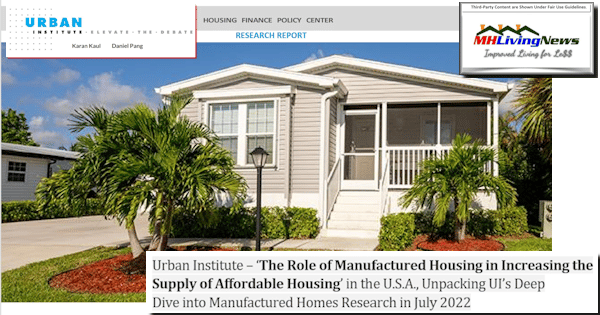
The battle for access to affordable housing is a national issue that plays out in local jurisdictions. From the WND NewsCenter provided to MHProNews is the following report about the latest case that the Institute for Justice (IJ) has taken up on a pro-bono basis in defense of the rights of citizens to own, use, or rent various types of affordable housing. The WND report will be followed by additional information, analysis, linked and focused commentary.
WND
U.S. city changes mind, decides to put tiny-home operators out of business
‘This attack on our livelihood has been deeply unsettling’
By WND Staff Published October 23, 2022 at 10:55am

A city in Florida has reversed itself, deciding instead of allowing tiny homes inside its borders, the structures are now banned – and with that decision comes officials’ determination to put two entrepreneurs out of business.
The Institute for Justice is fighting back.
The legal team has posted online a report about the catastrophe that has befallen Krsna Balynas and Govinda Carol.
They started out – about the time the COVID-19 pandemic struck – in building a tiny home and offering it for short-term rental.
They quickly realized there was a demand for their offering.
So with the recognition from the town of Alachua City officials that they could be classified and licensed as RVs, they built a dozen.
But now, in an abrupt redirection, the city withdrew its authorization and claimed the homes had to be removed immediately.
The IJ now has written to the city asking for reconsideration of its change.
“The city’s sudden about-face regarding these tiny homes pulls the rug out from under two budding entrepreneurs. But they had been operating in plain sight for over two years,” said IJ Senior Attorney Ari Bargil. “That is simply unfair. Citizens should be able to expect the government to apply their own regulations with consistency and fairness. Otherwise, our laws are meaningless.”
The tiny home business is known as Simplify Further, and operates a dozen of the compact living units.
The institute’s team explained, “Initially, Alachua interpreted its ordinances to classify tiny homes as RVs, which were allowed under the code. Additionally, the Florida Department of Highway Safety and Motor Vehicles allowed them to register the homes as RVs and the Department of Business and Professional Regulation licensed them as transient lodging establishments.”
But this month, “Alachua changed its mind” and the business operators were ordered to remove their homes.
“IJ is asking Alachua to either allow Krsna and Govinda to continue their business or provide them an additional 120 days to comply,” the legal team explained.
“This attack on our livelihood has been deeply unsettling. We are preparing for the birth of our next baby in a little over a month, and this has absolutely rocked the financial foundation that we have worked so hard to build,” said Krsna. “We spent years investing in and streamlining our business so that we could have the freedom to devote more time and energy to our family. We were almost there, and then the city shattered that vision when it pulled everything out from under us. It is inhumane and unfair what they are doing to our family.”
The fight is not entirely new to the IJ, which already has taken on a Georgia zoning law that bans tiny homes, another similar problem in Arizona, and in Idaho where officials banned a woman from living in her own home. ##
Additional Information with More MHProNews Analysis and Commentary in Brief
From the original IJ website press release on the topic above is this closing paragraph: “The Institute for Justice represents property owners in zoning and land-use battles nationwide. Currently, IJ is fighting a zoning law that bans the construction of tiny homes in a small Georgia city, a zoning law prohibiting an Arizona woman from living in an RV on her own property, and an Idaho city that has banned a woman from living in her tiny home on wheels.”
MHProNews previously reported on the Calhoun, GA tiny house case.

WUFT.org provided this video that covers aspects of the Alachua City, Florida matter.
Then and now we noted that IJ, working with others who have a need to defend their rights to private property and affordable housing, have either been willing to start litigation or have already launched a specific lawsuit.
Tiny houses, unlike HUD Code manufactured homes, have no preemptive federal statue to support them.
Tiny houses are not RVs, but as this article by WND and IJ noted, sometimes a jurisdiction may opt to treat them as if it were an RV.
Despite millions of views on some tiny house videos, the actual numbers of tiny houses remains quite modest. Unlike HUD Code manufactured homes, there is no one body tracking those totals. But the estimates known are typically in the thousand plus range vs. HUD Code manufactured homes which last year topped 100,000 new manufactured homes for the first time in over a decade.
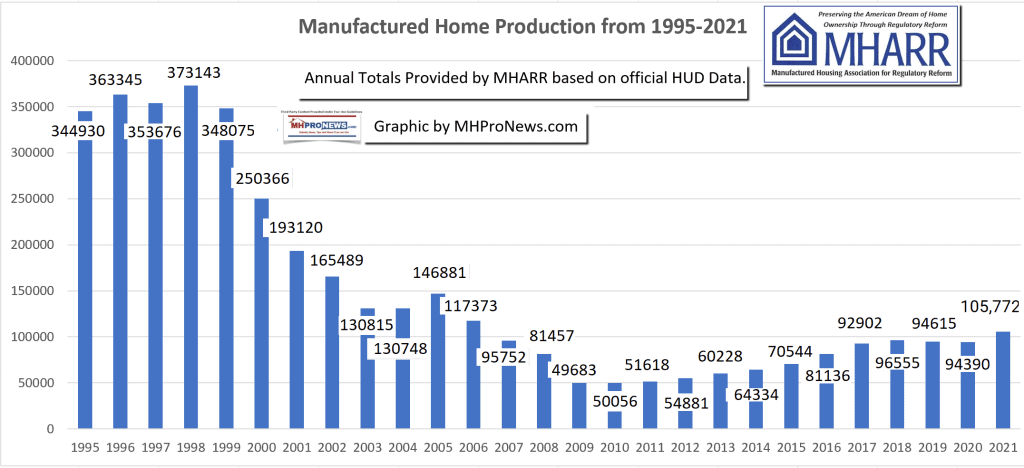
Graph Per GoDownSize on May 3, 2019: “How Many Tiny Houses Are They In The US? From looking at the number of Tiny Houses that are sold yearly we estimate that there are around 10,000 tiny houses in Northern America. 700 new houses are built every year from certified builders and we estimate that just as many are built privately.”
While it is laudable that IJ is taking on cases involving tiny houses, who is it that is doing the same for HUD Code manufactured homes? There are some 22 million Americans living in HUD Code manufactured housing. Depending on the source, there are about 8.8 to 9 million pre-HUD Code mobile homes (which comprise roughly 2 million of that total), so there are roughly 7 million HUD Code manufactured homes in the U.S.A. today. Despite two major federal laws enacted that on paper ought to be benefiting HUD Code manufactured homes, since 2000 the industry is producing fewer manufactured housing residences than it did in the 1990s.
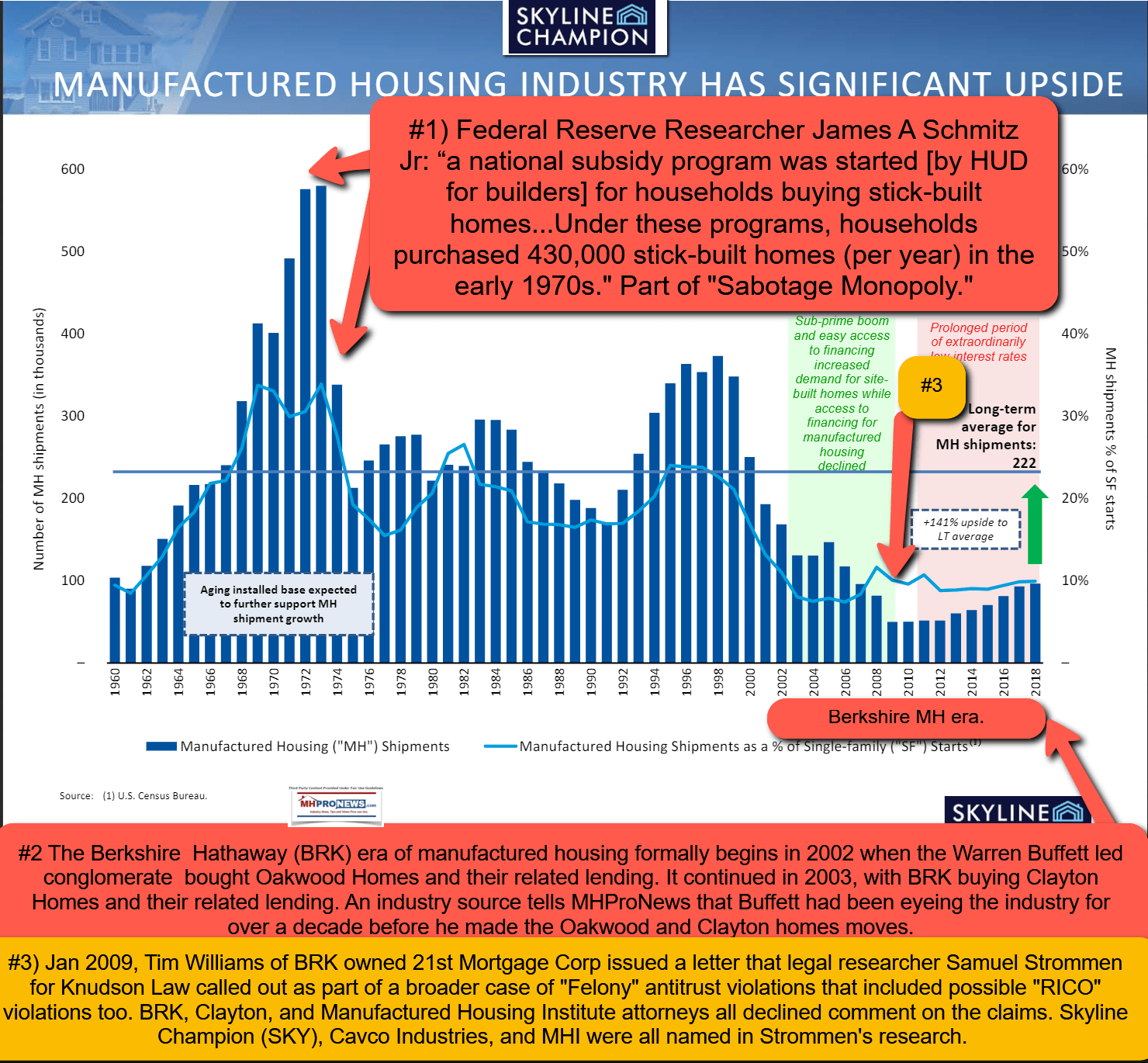
While the Manufactured Housing Institute (MHI) claims to represent “all segments” of the manufactured home industry, that claims has been called into question for years by industry insiders, some of whom are quite vocal in denouncing MHI’s effectiveness at representing the “post-production” sector. Meanwhile, the Manufactured Housing Association for Regulatory Reform (MHARR) represents the interests of independent producers of manufactured housing. In the absence of what they deem to be an effective trade group representing the interests of the post-production segment of the industry, MHARR has for a decade or so increasingly spotlighted issues that are post-production related that are limiting the access and sales of modern manufactured homes.
MHI asserts – see 2nd linked article below, which cites then in their own words – that they have a ‘strong advocacy’ underway. Why is it that such advocacy fails to deploy or even threaten the use of litigation? MHI has a multi-million-dollar annual budget. They have long had a staff attorney plus outside attorneys too. MHI could do what IJ has been doing to this extent. MHI could pick local jurisdictions that are violating the so-called “enhanced preemption” provision of the bipartisan enacted Manufactured Housing Improvement Act (MHIA) of 2000.
MHARR offered during the Trump Administration to team up with an MHI state affiliate to pick a good local case and litigate it. Despite the fact that state associations routinely complain about zoning and placement barriers, MHARR reported that no one stepped up to the plate to accept their offer.
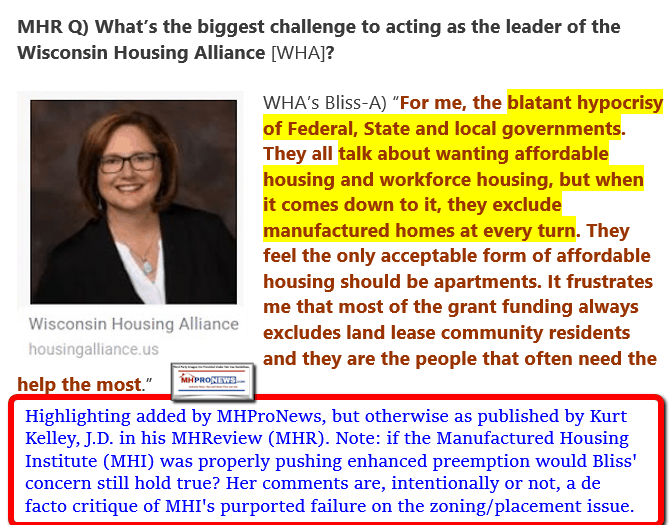
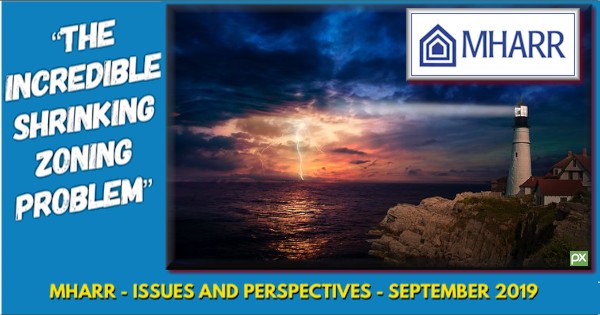
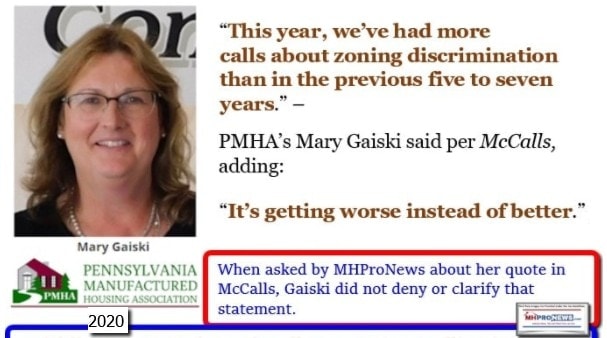
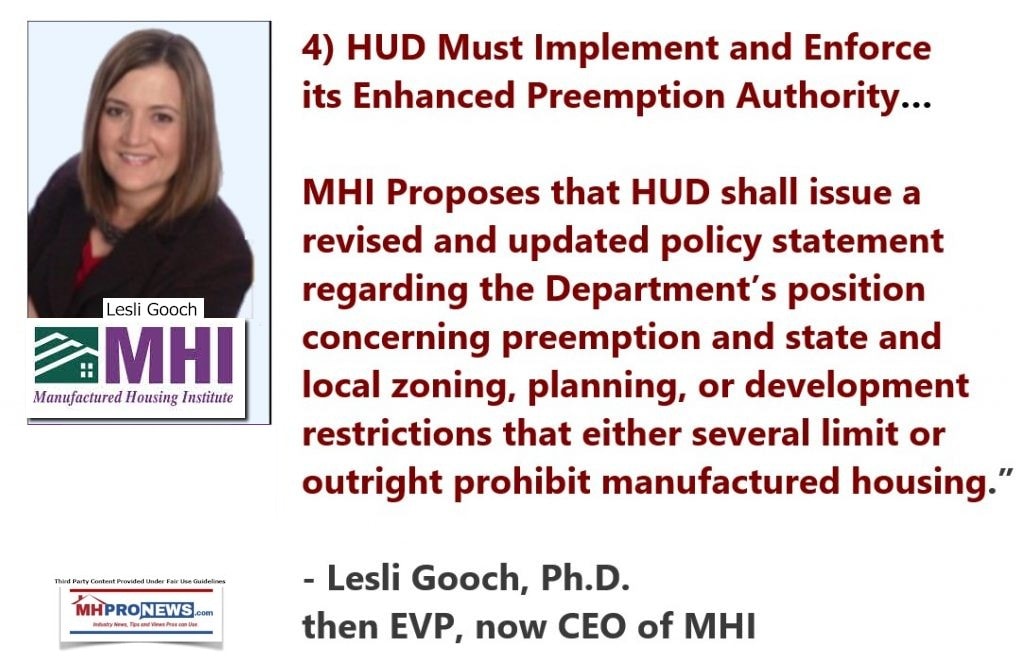
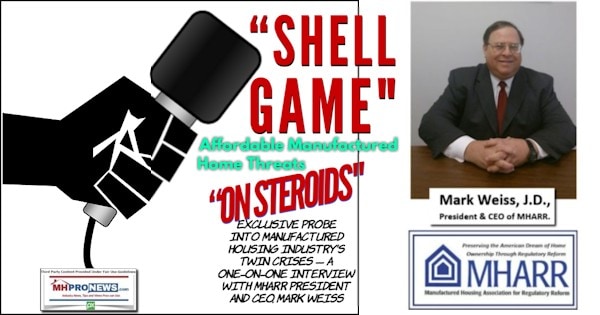
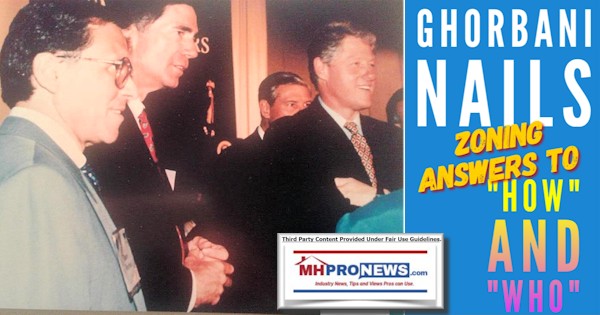
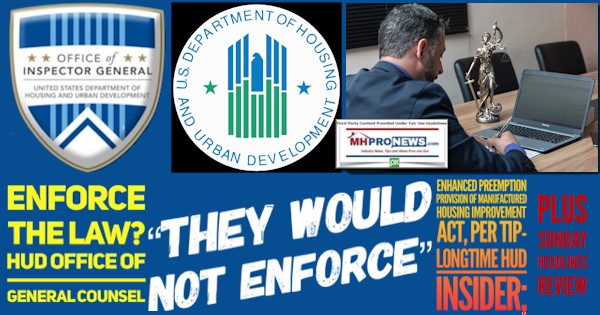
That leaves MHI holding the sole responsibility for failing to do what they claim verbally and in writing that they are doing. For more details, see the Masthead editorial linked below, that cites MHI at length in their own words and unpacks their comments against known evidence and facts.
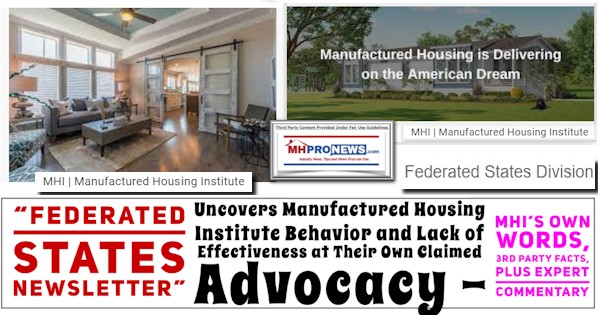
As Minneapolis Federal Reserve researchers have noted in recent years, ‘sabotage monopoly’ tactics are limiting the deployment of HUD Code manufactured homes. Additionally, that lack of affordable housing is fueling a range of social ills that include homelessness.
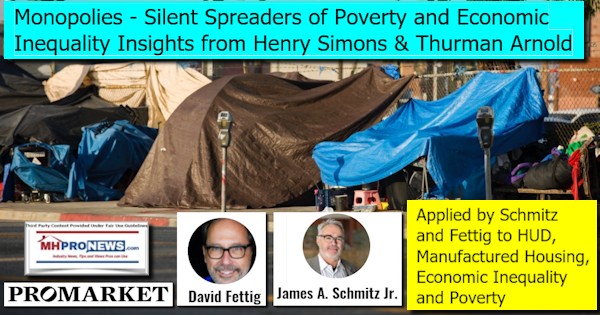
Certainly, this isn’t the only time that a trade group has postured one thing but has done another. Note that the libertarian leaning CATO Institute now has Dr. Richard Rahn on their team, but he previously railed against his now former bosses at the U.S. Chamber of Commerce in an arguably similar vein.
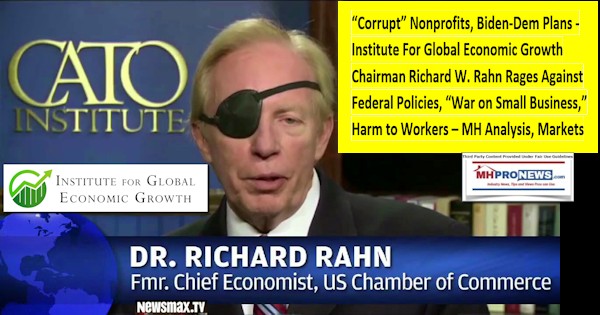
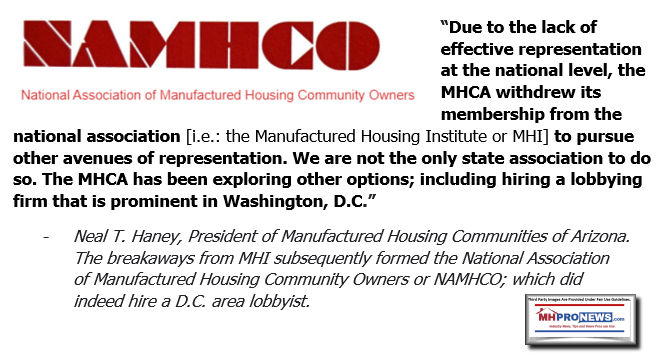
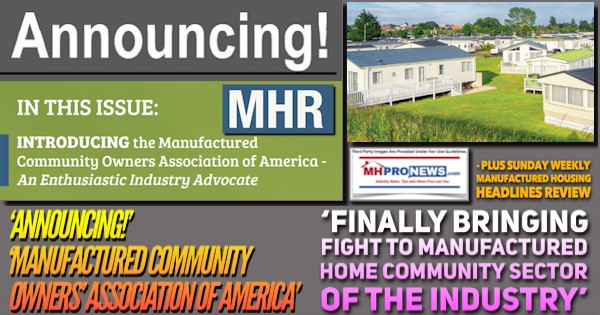
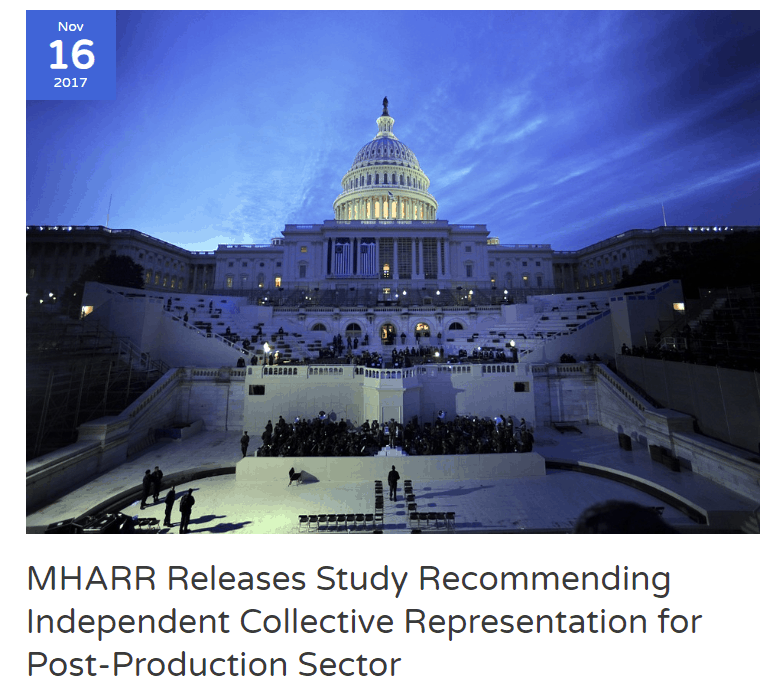
Anything that has happened before can happen again. The need to rouse independents, manufactured home consumers, affordable housing seekers and advocates in an effort to implement existing federal laws ought to be high on the list of any person or group that sincerely wants to see property rights and human rights in the U.S. to get the attention and respect such issues deserve. ##
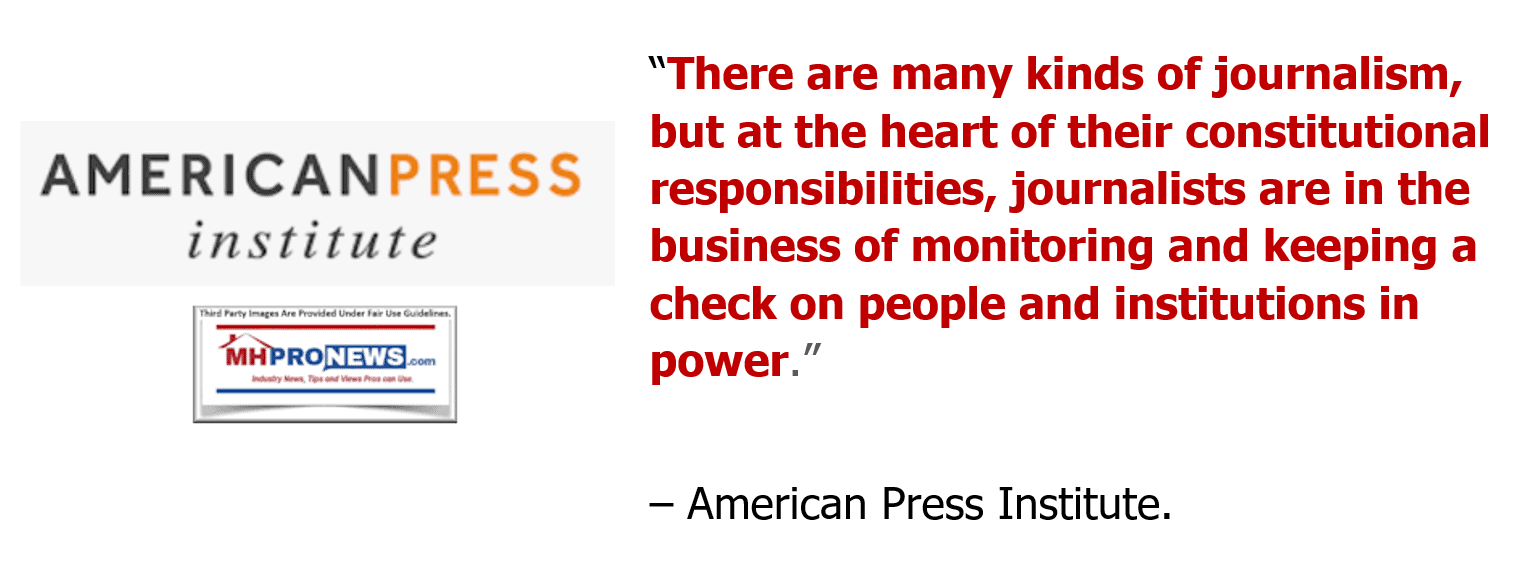


Again, our thanks to free email subscribers and all readers like you, our tipsters/sources, sponsors and God for making and keeping us the runaway number one source for authentic “News through the lens of manufactured homes and factory-built housing” © where “We Provide, You Decide.” © ## (Affordable housing, manufactured homes, reports, fact-checks, analysis, and commentary. Third-party images or content are provided under fair use guidelines for media.) (See Related Reports, further below. Text/image boxes often are hot-linked to other reports that can be access by clicking on them.)

By L.A. “Tony” Kovach – for MHProNews.com.
Tony earned a journalism scholarship and earned numerous awards in history and in manufactured housing.
For example, he earned the prestigious Lottinville Award in history from the University of Oklahoma, where he studied history and business management. He’s a managing member and co-founder of LifeStyle Factory Homes, LLC, the parent company to MHProNews, and MHLivingNews.com.
This article reflects the LLC’s and/or the writer’s position, and may or may not reflect the views of sponsors or supporters.
Connect on LinkedIn: http://www.linkedin.com/in/latonykovach
Related References:
The text/image boxes below are linked to other reports, which can be accessed by clicking on them.
